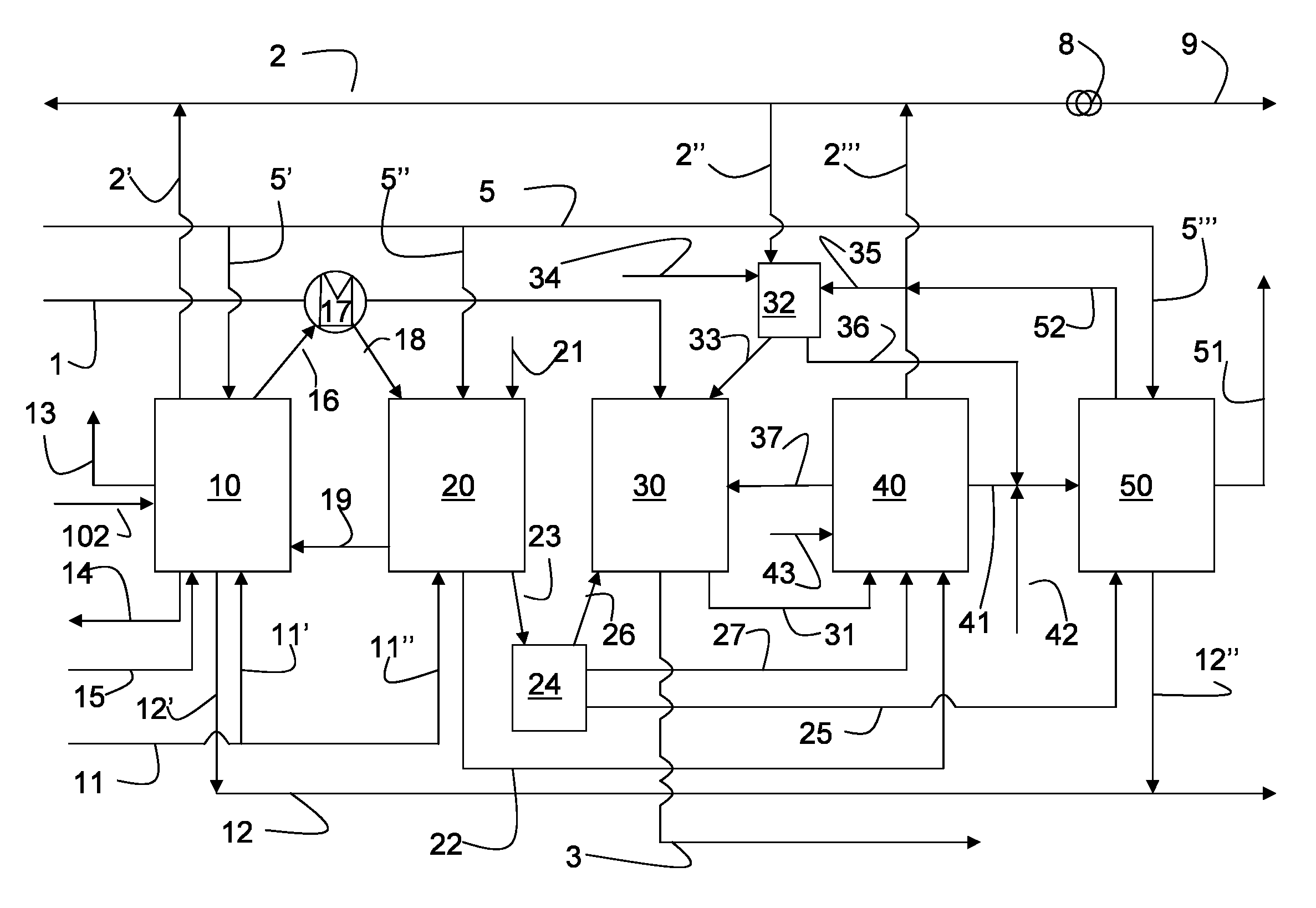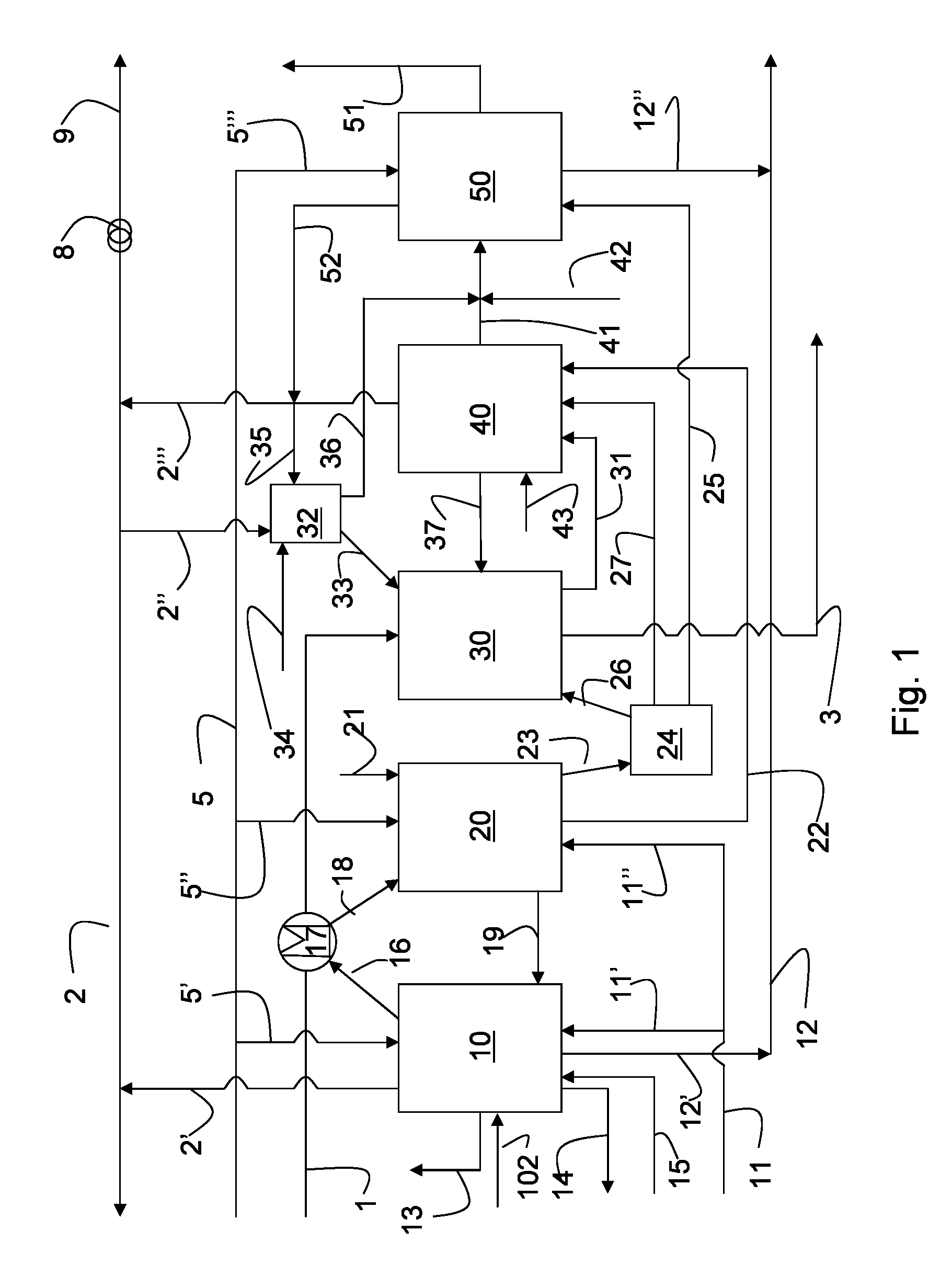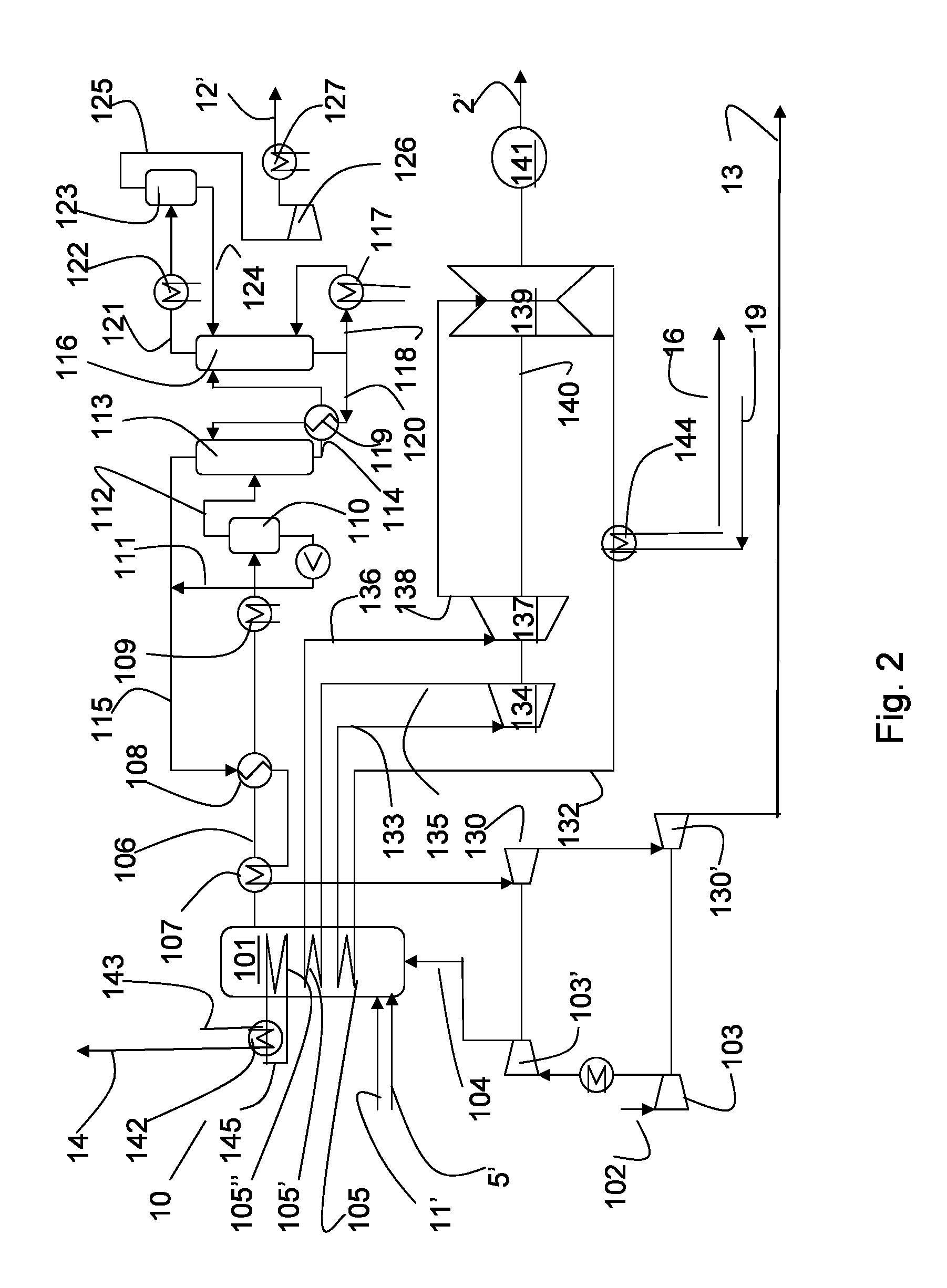Oil sand production without co2 emmission
a technology of oil sand and co2 emission, which is applied in the direction of emission prevention, flue gas purification components, borehole/well accessories, etc., can solve the problems of high co2 /sub>emission, negative environmental effects of oil sand extraction, and relatively high cos
- Summary
- Abstract
- Description
- Claims
- Application Information
AI Technical Summary
Benefits of technology
Problems solved by technology
Method used
Image
Examples
first embodiment
[0039]Depending on the relative requirement for electrical power and steam for EOR, the tube coils 105, 105′ and 105″ may be dimensioned or operated to meet different needs. In a first embodiment illustrated in FIG. 2, steam and superheated steam are produced in tube coils 105, 105′, respectively, which steam is expanded over steam turbines 134, 137, 139 for generation of power as described above. Steam EOR is generated as described above by steam generation in the tube coil 105″ for heating of water and generation of steam in the heat exchanger 142. Steam for EOR is withdrawn through line 14.
second embodiment
[0040]In a second embodiment, illustrated in FIG. 3, tube bundles 105, 105′ are omitted and substituted totally by tube bundle 105″ so that all steam production in the boiler is produced in tube coils 105″ and is used for EOR.
third embodiment
[0041]FIG. 4 illustrates a third embodiment, wherein tube coil 105′ is omitted. Both tube coils 105 and 105″ may be dimensioned individually to cool the combustion gases in the combustion chamber to the required temperature, so that the plant may be operated in different modes, a normal mode where both electrical power and steam for EOR are produced, and alternative modes where all steam generated in the tube coils are produced in either tube coils 105 or 105″, to result in production of electrical power only or steam for EOR only.
[0042]Any electrical power generated by the power plant 10 is withdrawn through lines 2′, 2 to be used in the plant 1 or to be exported. The electrical power in line 2 may be used as a supplement of alternative to steam injection to promote production of bitumen, by means of electrodes inserted into the oil sand field.
[0043]Low temperature heat from the power plant, e.g. from any of the coolers such as a cooler 144 provided in line 132, may be withdrawn th...
PUM
 Login to View More
Login to View More Abstract
Description
Claims
Application Information
 Login to View More
Login to View More - R&D
- Intellectual Property
- Life Sciences
- Materials
- Tech Scout
- Unparalleled Data Quality
- Higher Quality Content
- 60% Fewer Hallucinations
Browse by: Latest US Patents, China's latest patents, Technical Efficacy Thesaurus, Application Domain, Technology Topic, Popular Technical Reports.
© 2025 PatSnap. All rights reserved.Legal|Privacy policy|Modern Slavery Act Transparency Statement|Sitemap|About US| Contact US: help@patsnap.com



